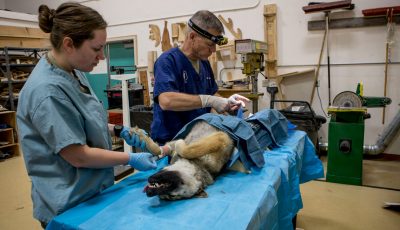Surprising arthritis remedy
More than a year ago I ran into a fellow named Rod Stewart at Pacific QuickPrint. As usual, we gabbed about health matters as we stood among the mailboxes.
Rod said that the trace mineral boron was helpful to anyone with arthritis or joint pain. I got some soon after but only took it intermittently. Didn’t really need to, I felt.
Then about a month ago my shoulders started aching. I took some extra calcium, vitamin K2, and sat in the sun for an hour in order to get my vitamin D levels up. The annoying ache in my shoulders remained.
Then, a few days ago, I remembered what Rod had said and took some boron. Almost immediately my shoulders felt better.
Intrigued, I decided to research the connection between boron and joint pain.
What follows is quoted from: http://cheflynda.com/2015/03/the-inexpensive-arthritis-osteoporosis-cure/:
Boron is a mineral that is an activator. It helps to activate or cause many other functions to happen within the body. Boron is one of the main minerals used in the bone building process. Boron initiates estrogen by helping convert vitamin D into an active state. The estrogen then improves absorption of calcium. Boron also helps metabolism to take place within the bone. With this metabolism properly functioning, osteoporosis is not a major factor to a person’s health. Once osteoporosis sets in, Boron can play a major role in helping the body to replace lost calcium.
Boron also assists in preventing arthritis and tooth decay. Boron is one of the minerals necessary for building and repairing joint cartilage. Boron is essential in maintaining the correct levels of calcium, magnesium and phosphorus in the body. Boron helps to regulate hormones, especially estrogen and testosterone. Boron also helps maintain brain function and memory capabilities.
Boron is essential for all life in plants as well as animals. Boron is also essential for the integrity and function of cell walls and the way signals are transmitted across cellular membranes.
When ingested it reacts with hydrochloric acid in the stomach to form boric acid, ingested boron compounds are rapidly and nearly completely excreted with the urine.
Boron deficiency symptoms
Some symptoms of boron deficiency are arthritis, brittle bones, carpal tunnel syndrome, degenerative joint disease, hormonal imbalance, loss of libido, memory loss, muscle pain, osteoporosis, receding gum, and weak joint cartilage. Boron deficiency causes greatly increased amounts of calcium and magnesium to be lost with the urine.
Boron deficiency causes the parathyroid to become stressed, which causes the glands to release too much parathyroid hormone. Excess parathyroid hormones raise the blood level of calcium by releasing calcium from the bones, joints and teeth into the bloodstream. This then leads to osteoarthritis and other forms of arthritis, such as rheumatoid arthritis, juvenile arthritis, spondylitis, gout, lupus, osteoporosis, pyorrhea, and tooth decay.
With advancing age high blood levels of calcium lead to calcification of soft tissues causing muscle contractions and stiffness; calcification of the eyes, endocrine glands, especially the pineal gland and the ovaries. Arteriosclerosis, kidney stones, and calcification of the kidneys ultimately lead to kidney failure. When the intracellular calcium levels get too high, the cells will die.
Bone analysis has shown that arthritic joints and nearby bones have only half the boron content of healthy joints. Equally, synovial fluid, which lubricates joints and provides nutrients to the cartilage, is boron-deficient in arthritic joints.
Arthritis in its various forms and its close relative osteoporosis affect a very large percentage of the population in developed countries. Osteoporosis is responsible for more long-term hospital care than any other individual disease. This is due to the very high incidence of fractures, and especially the protracted nature of hip fractures.
Health effects of boron
A boron supplement will reduce the daily loss of calcium by nearly 50 percent. As this calcium is withdrawn mainly from your bones and teeth, Boron deficiency may be the most important factor in causing arthritis, osteoporosis and tooth decay today.
Boron affects the metabolism of steroid hormones, and especially the sex hormones. Supplementing with Boron increases low testosterone levels in men and estrogen levels in menopausal women.
Boron also has an important role in converting vitamin D to its active form, thus increasing the calcium uptake and deposition into the bones and teeth rather than causing soft tissue to calcify. Also other beneficial effects have been reported such as improvement of heart disease, vision, psoriasis, balance, memory and cognition.
A German cancer researcher, Dr. Paul-Gerhard Seeger, has shown that cancer commonly starts with the deterioration of cell membranes. Since Boron is essential for cell membranes and Boron deficiency is widespread, this may be an important cause for the initiation of tumor growth. Boron compounds have anti-tumor properties and are “potent anti-osteoporotic, anti-inflammatory, hypolipemic, anti-coagulant and anti-neoplastic agents.”
It has been estimated that 55 percent of Americans over the age of 50 have osteoporosis and of these approximately 80 percent are women. Worldwide 1 in 3 women and 1 in 12 men over the age of 50 have osteoporosis, and this is responsible for millions of fractures each year. In scientific studies rats with osteoporosis were given a boron supplement for 30 days with the result that their bone quality was then comparable with that of the healthy control group.
While in good health and especially in younger years, a calcium/magnesium ratio of 2:1 is normal and beneficial. However, with increasing age, Boron deficiency and resulting disease conditions, we require less calcium but more magnesium.
For boron to be fully effective in reversing tissue calcification ample magnesium is required. For older individuals 400 to 600 mg of magnesium together with the daily boron supplementation spaced out during the day. However, the correct form of oral magnesium must be taken to avoid the usual laxative effect.
Sources strongly doubt whether calcium supplements are needed or even beneficial, even in case of osteoporosis. Tests show that most individuals have plenty of calcium (stored in their soft tissues where it does not belong), and supplementing boron and magnesium redeposit this misplaced calcium directly into bones. (Vitamin K2 also does this).
Boron is most likely available at various vitamin supply outlets on the island. You may certainly find it on the Internet, at SwansonVitamins, eBay, and other Web sites. (Russ Mason)



























